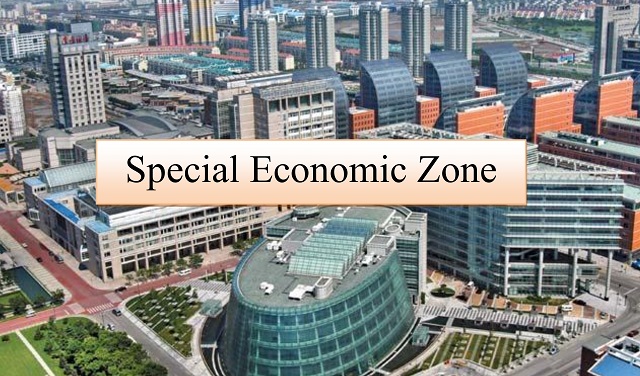
The Sunday News

Bongani Ngwenya
NOW that the Government has finally passed and gazetted the statutory instrument (SI) 154 of 2018 operationalising the Special Economic Zones (SEZs), there is a need to seriously tackle the scourge of corruption in the country, especially by Government officials.
There have been numerous allegations of corruption by Government officials in the past, some who have been accused of soliciting for bribes from potential investors. Such malpractices and ill behaviour should not find room in the transforming political economy.
The gazetting of the SI 154 operationalising the SEZs is opening the corridor for potential investment in the established SEZs across the country by both domestic and foreign investors.
In the meantime, the Government has established the SEZs status for Sunway City in Msasa/ Ruwa, Victoria Falls, Bulawayo, Mutare and Norton. The country is ripe and ready for investment in SEZs, endowed with a variety of resources.
The biggest challenge is that the operationalisation of the SEZs has come at a time when there is serious concern about corruption in the country. Even the President, in his inauguration speech last Sunday had to change his tone in emphasis for zero tolerance for corruption.
The latest survey by the global watchdog Transparency International has ranked Zimbabwe in terms of corruption, number 157 out of the 180 countries surveyed, with Somalia said to be anchoring the bottom of the pack.
According to the watchdog Transparency International, it is the countries’ public sector’s corruption disposition that determines the corruption ranking, notwithstanding the share of the private sector. In other words, countries are naturally ranked based on how corrupt their public sectors are perceived to be.
Corruption in Zimbabwe is perceived to have reached alarming levels, and has infiltrated several public and private institutions. Such perceived levels of corruption are certainly threatening the success of the SEZs, even before they are operational.
Corruption is huge potential cost to investment and doing business. The incoming Government has a mammoth task of inspiring confidence in dealing with the scourge of corruption in the country. Dealing with corruption will certainly require strong political will and muscle to hold the bull by its horns.
In June last year, the Government appointed the board of the Zimbabwe Special Economic Zones Authority (ZimSeza), chaired by former Reserve Bank of Zimbabwe governor Dr Gideon Gono. Zero tolerance to corruption should begin with the board itself.
It is important to note that the success of the SEZs as vehicles for sustainable economic growth and development hinges on creation of a corruption free environment, beginning with the board itself as it is tasked with an oversight responsibility for operations of the SEZs authority.
We have had stories in the past of corruption tendencies among the public officers responsible for facilitating investment and trade in the country. The gazetting of the SI 154 of 2018 came with the stipulation of the fees for application for a developer, an operator or investment, and permit or licence.
By their nature, the established SEZs would require development in the form of construction of infrastructure and assets on the SEZs factor of production land.
This would include on-site infrastructure, transportation connections and networks, employee quarters, office space and other facilities to be used by the administrative facilitation service and the national customs authorities.
It is quite important and critical that the construction of the necessary infrastructure should adhere to international standards and the applicable SEZs licences or development agreements and to the performance requirements as set out in the memorandums for the SEZs as specified in the developers and operators’ agreements.
Such scale of development investment has a tendency of attracting the build, operate and transfer (BOT) development model.
There have been complaints in the past that these BOTs have failed to ensure balanced mutual benefits to all the parties involved.
In the case that there would be consideration for such development models for the development of the SEZs infrastructure, the SEZs authority’s board would need to ensure that international standards are adhered to for mutual benefit of the parties involved, especially where the tax payers’ money is involved.
Only a corruption clean and zero tolerance to corruption disposition and political will would ensure the achievement and success of the SEZs investment model in the country. The SEZs investment model has a potential of developing the country in terms of state-of-the-art infrastructure and technology.
In conclusion, and by the way, potential investors have options to invest elsewhere, where their investments can be safe. When that happens territories that are deemed and perceived to be corrupt and investment unfriendly stand to lose.
Dr Bongani Ngwenya is currently based at UKZN as a post-doctoral Research Fellow and can be contacted at [email protected]



